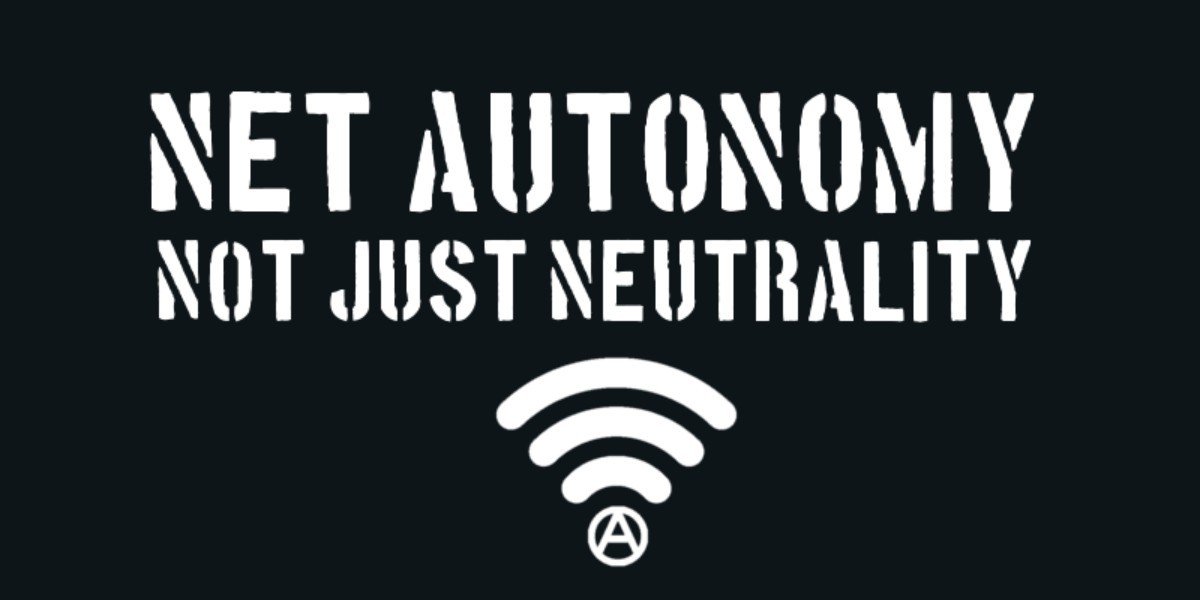Filed under: Capitalism, Critique, Technology, The State, US

December 14th is the congressional vote to repeal Title II classification for Internet service providers, which regulates them as public utilities and mandates equal protection for all Internet traffic, fulfilling the concept of Net Neutrality. It seems that I’ve been here before, and nothing feels different aside from this issue in the grand scheme of things. That, and maybe my level of cynicism.
Three years ago, in my social democrat days, I dove into all that so-called “Team Internet” could really do. The late Obama years were a push to ensure progressive policies would withstand after election season. Everything except physically organizing was what I did when the FCC was urged to adopt clear net neutrality rules. We knew that consumers were just waiting to be fucked over by broadband companies if reclassification didn’t beat them to it, so it was a big deal for most of that year.
Outreach was rather grueling when trying to bring the issue to everyone who uses the Internet. The aggressive lies about “innovation” being at stake if broadband speeds didn’t remain a competitive market seemed as convincing to many as the reality of Internet connections being universally jumbled with the stablest ones concentrated in the hands of those who could pay.
Initially, I didn’t think writing/calling congress and having the situation explained in full would matter much. What felt like this loose network of hackers and nerd-activists seemed to be no match for the landlords of broadband and their lobbyists, so my hopes for victory were modest. But in time the decision to reclassify was sealed, thanks to enough noise against the idea of paying premiums for different connections. There was a sense of accomplishment in banding together within the “safety” of government that my white skin affords me.
This, of course, was before the political jolt that was Trump’s presidency. Around an administration that has been one clique power-grab after the other, Ajit Pai’s flagship decision as newly-appointed FCC chairman was to crash and burn protective Internet regulations, similar to our health care system or public water treatment.
What distinguishes then from now is (my understanding of) what I want out of putting time and energy into an issue. I realized the inherent limitations on what could realistically be won through this perpetually circular politics of appeal and compromise. Self-described “radicals” are engaging in a battle for leverage in a situation that affects what they should realistically be forcing out of the hands of the few. Its not exactly overcoming or progressing (notions that liberals have always suggested) if you’re constantly fighting for the same reforms in different political eras. I arrived at the conclusion that working within authority can only push it to change its tactics of constraint. It has to be deconstructed, physically disrupted and abolished by obsolescing its relevance through new social habits.
This is ultimately no more of a surprise than Trump doing anything else. When you have a president with this kind of hubris, uncharted influence and a tattered but intact support base with various reactionary formations, this is just a drop in the bucket. I was convinced that the definitive sign of more (and worse) to come was the early rhetoric around immigration and “America first”, so its hard to be surprised or significantly upset by any of this.
Let’s not take all this to mean this situation isn’t a problem. Bludgeoning Internet access to guarantee that Telecom giants can exert restraint on consumers as a business strategy in this particular time of polarization and turbulence — especially with most organizing happening online — is going to prove difficult for radicals’ playing field.
But do I clench my heart and cry “Oh, the humanity!” No, because whether we have European-style net neutrality regulations or the same model we have for health care, we are ignoring the relationship at play. The entities people are out to win over cannot have the same conversation. There are mutually opposing interests that are the final say, and accruing their sympathy will not do anything if it conflicts with them. You always run the risk of having any concessions revoked when they’re mere options for appeasement within the negligence of impersonal democracy.
Net neutrality is a false distinction in a society where access to anything is fundamentally broken, let alone the Internet. Nonetheless, liberals will prioritize the things within reach to middle-class whites and avoid the overarching motive behind it all. This is going to be a pain, no doubt. What isn’t in this world?
Hashtag resistance is officially canceled.
What the Internet has demonstrated is among the most effective means of collaborating and opening up new and powerful means of expressing, sharing, reinventing and decentralizing. But that ethos can never reach its fullest potential when Telecom property owners can pull the plug at whenever they please. Furthermore, those companies can never cease control of our access so long as any base that props them up remains.
The airwaves are a commons. Every tool and beyond should be, but this will never be adopted as the reality so long as monopolizing or mediating capabilities exist anywhere, be they state or private.





